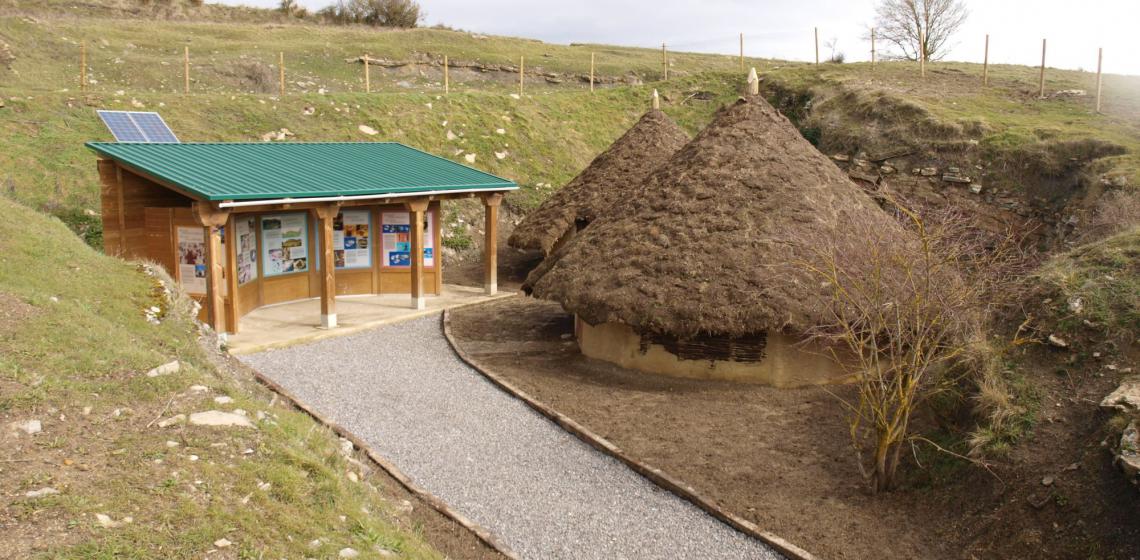
The Interpretation Centre of Castro de Henaio is located on a hill near Alegria-Dulantzi with a Bronze Age - Iron Age settlement between 1000 BC and 200 AD. It contains two life-size (re)constructed houses with a diameter of six metres and 4.5 meters high...
The walls are made of vertical posts with sticks, closed with wattle and daub work. Besides the two houses, two sections of wall of a length of four meters each were reproduced.
The museum is managed by the Alegria-Dulantzi City Council. One of the houses has an interior setting showing the atmosphere of the life of those times. This has been possible thanks to data from archaeological excavations in 1969-1970 by the renowned archaeologist D. Armando Llanos.
The excavators discerned three occupation levels on one of the terraces on the top of the hill. In the highest level, stone walls were found which were quite much damaged by later plowing. In the lowest level, framents of the holes of wooden poles for the buildings were found. Radiocarbon analyses prove that the site was occupied for about 800 years.
It seems that the Iron Age people who decided to settle on the hill chose the hill for its steep slopes on three sides, further boosted with an artificial defence in terraces and walls, which were obviously more powerful on the south side, which lacked proper natural defence. Because of the elevation, an area of natural steppe was controlled, east-west, as well as those through the mountains of Vitoria. This enabled the access of people from the south to the Llanada Alavesa.
After the Department of Culture of the Basque Government gave its approval to the declaration of this element as a Cultural Asset a musealisation was commissioned in 2004 leading to the (re)construction of what can be seen today.
The complex is open every Saturday and Sunday from 11.00 to 14.00 in the summer. In the months of July and August, you can also visit Wednesday. In addition, visits may also be booked outside these hours.